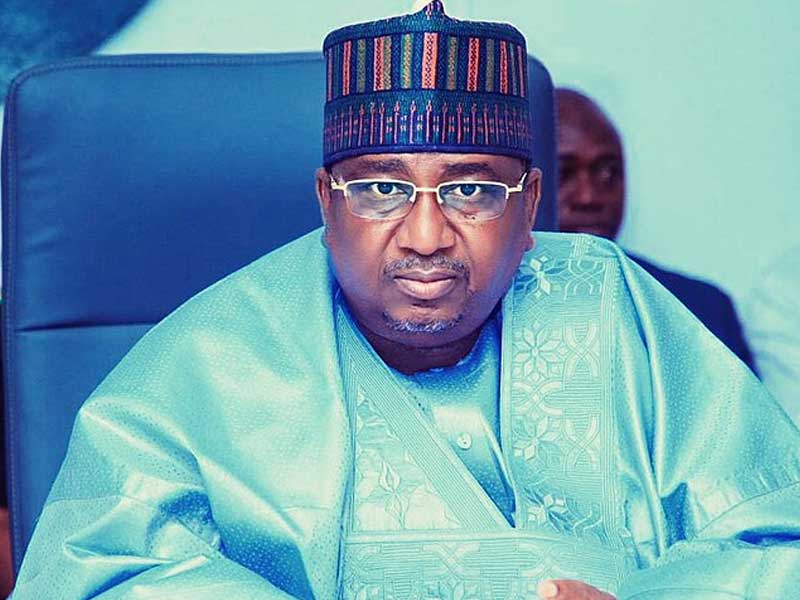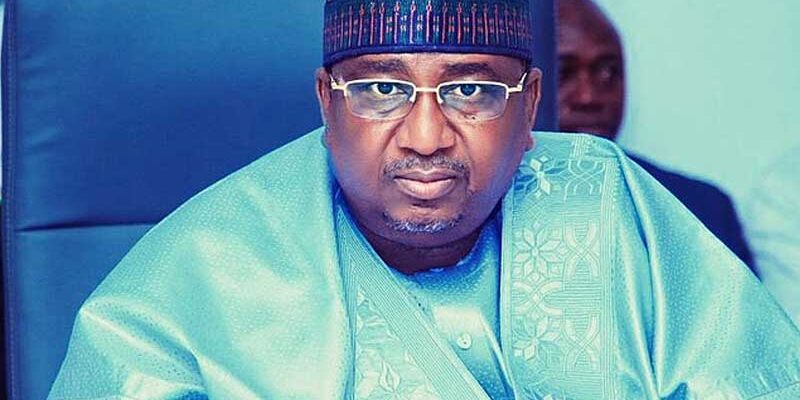
The sudden emergence of campaign posters featuring former Attorney General of the Federation, Abubakar Malami, across Kebbi State and on social media has triggered political tension ahead of the 2027 governorship election.
Reporters observed that the posters, which suggest Malami may be eyeing the governorship seat, have unsettled the camp of incumbent Governor Nasir Idris and reignited debates around political zoning, the performance of the current administration, and mounting calls for power rotation away from Kebbi Central.
Governor Idris, who assumed office in 2023 on the platform of the All Progressives Congress (APC), is currently in his first term. Historically, no sitting governor in Kebbi has ever lost a re-election bid—a precedent that supporters of Idris believe favors his second-term ambition.
Backed by his deep roots in organized labor, Idris rose through the ranks as a former National President of the Nigeria Union of Teachers and Deputy President of the Nigeria Labour Congress. His popularity among civil servants and grassroots networks was a key factor in his 2023 victory. However, his path to re-election may prove more turbulent than those of his predecessors.
Mounting insecurity, including the rise of the terrorist group Lakurawa in parts of the state, has cast a shadow over his administration. Meanwhile, the opposition Peoples Democratic Party (PDP) has gained significant ground, having clinched all three senatorial seats in the last general elections—Kebbi North, Central, and South—a rare feat that signals growing dissatisfaction within the APC ranks.
While Malami has yet to officially declare his intention to run, sources close to the former minister suggest he is weighing his options carefully, including the possibility of defecting to the PDP if denied the APC ticket.
“Malami is not desperate, but he is calculating,” a source revealed. “If the APC closes its doors on him, the PDP is watching.”
Adding to the evolving dynamics is the influence of former Governor and political heavyweight, Senator Adamu Aliero, who has since aligned with the PDP. Once a mentor to many political actors in the state, Aliero’s strained relationship with Governor Idris and his growing influence within the opposition could become pivotal in the 2027 race.
The reemergence of Malami in the political spotlight has further deepened internal tensions within the APC. While some party members dismiss his ambitions due to perceived weak grassroots support, others argue that his strategic silence and strong national connections could make him a formidable contender.
“Malami’s name carries weight in Abuja, not in our villages,” said APC chieftain Shehu Bashir from Birnin Kebbi. “Governor Idris may have challenges, but he is connected to the people.”
Conversely, Salif Moussa from Arewa Dandi warned against underestimating Malami’s influence. “He’s a strategist. His charity work, his alliances, and his patience are all calculated moves. If he declares, he won’t be a pushover.”
Malami, a native of Kebbi Central, previously expressed interest in the 2023 governorship race but withdrew unexpectedly, paving the way for Idris’s emergence as the APC candidate. His possible re-entry into the political scene has reignited the debate on power rotation, with growing calls for the governorship to shift to Kebbi North or Kebbi South.
“Our zone has never produced a governor,” said Musa Dankande, a youth leader from Yauri in Kebbi South. “It’s not about ethnicity or religion—it’s about fairness. APC must listen if they want to keep the state.”
Although Malami has not made any public pronouncement, analysts believe the return of his campaign posters is a calculated step toward 2027. With the election less than two years away, Kebbi appears set for a politically charged contest that will test the influence of incumbency, federal might, and grassroots sentiment.
The race has begun—and the battlefield is heating up.

Comments